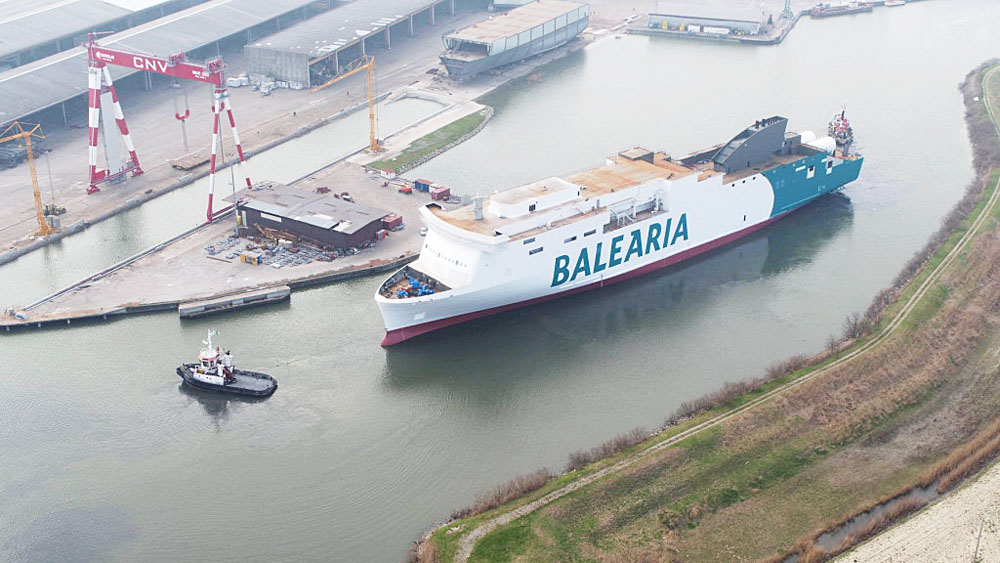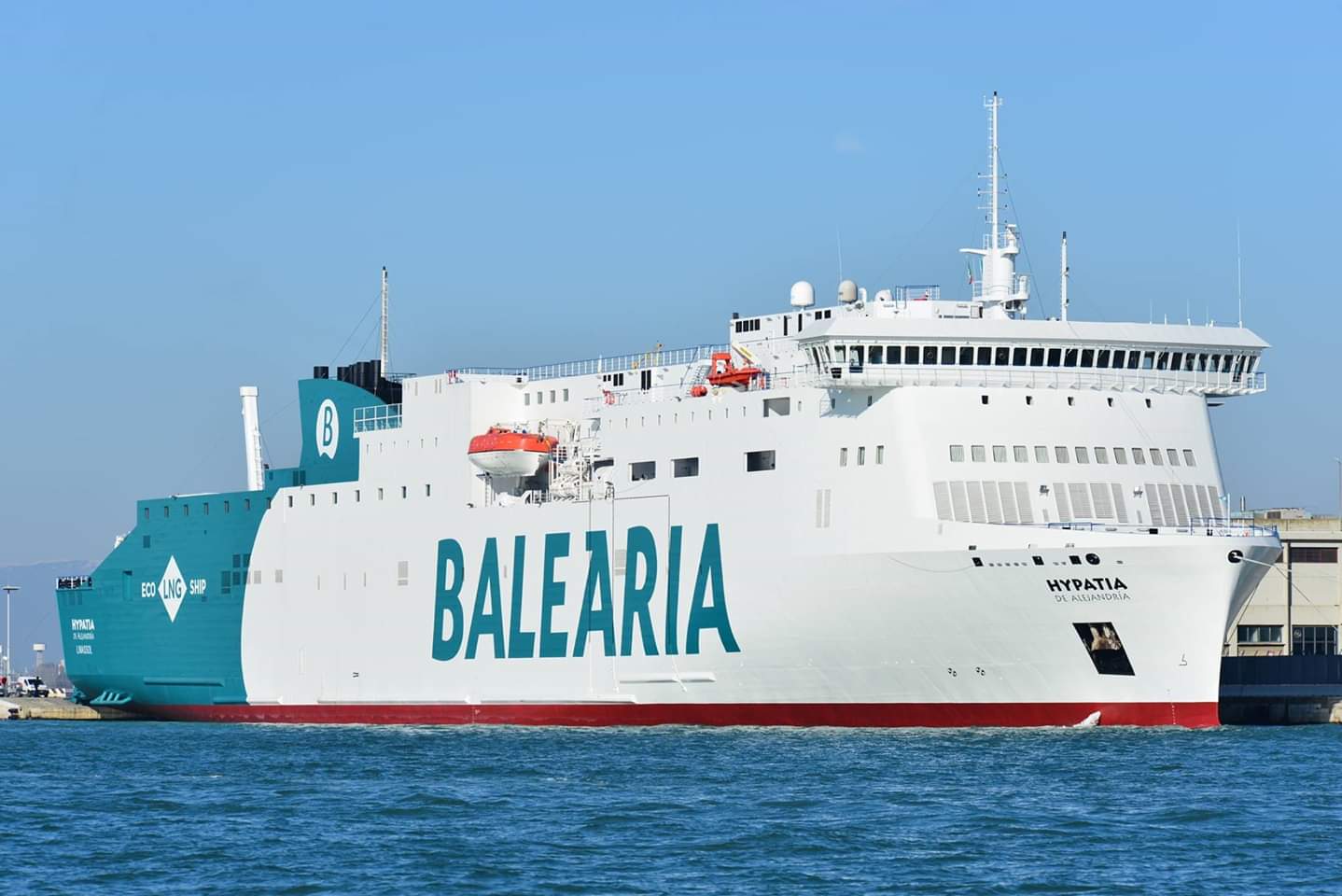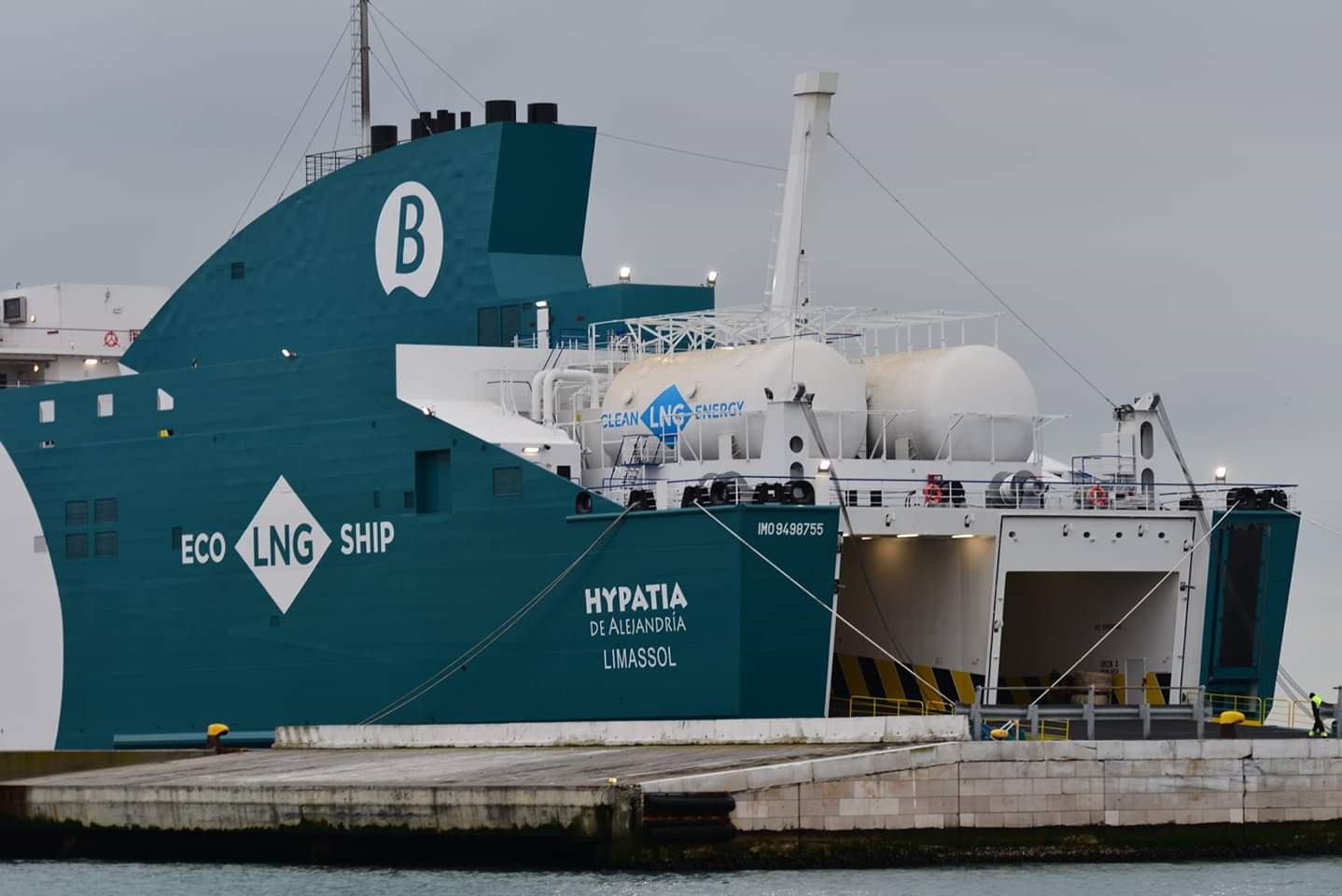Baleària Orders Two Dual Fuel Ferries in Italy
Spanish ferry operator Baleària has reached an agreement with the Italian shipbuilder Cantiere Navale di Visentini for the construction of two dual fuel ferries.
The new vessels, which will feature a length of 186.5 meters, will be capable of carrying up to 810 passengers, 2,180 linear meters of cargo and 150 cars.
The company said that the total investment for the project will amount to EUR 200 million (USD 216.2 million).
Scheduled for delivery by the end of 2018, the ferries will use liquefied natural gas (LNG) and other clean energies to reduce CO2 and NOx emissions by more than 40%, according to the company.
The new ferries will enable the shipping company “to ensure better service to both passengers and logistics operators, while gaining competitiveness,” Adolfo Utor, President of Baleària, said.
The order was placed a year after Baleària finalized an agreement with compatriot LaNaval Shipyard for the construction of a liquefied natural gas and solar-powered ferry.
The earlier order, which saw the ferry operator invest some EUR 175 million, had an option for a second ferry, which would bring the total amount of the deal up to EUR 350 million.
Featuring a length of 232.2 meters, the ferry is scheduled to start operations in 2019.
Kilde: World Maritime News
Spanish ferry operator Baleària has reached an agreement with the Italian shipbuilder Cantiere Navale di Visentini for the construction of two dual fuel ferries.
The new vessels, which will feature a length of 186.5 meters, will be capable of carrying up to 810 passengers, 2,180 linear meters of cargo and 150 cars.
The company said that the total investment for the project will amount to EUR 200 million (USD 216.2 million).
Scheduled for delivery by the end of 2018, the ferries will use liquefied natural gas (LNG) and other clean energies to reduce CO2 and NOx emissions by more than 40%, according to the company.
The new ferries will enable the shipping company “to ensure better service to both passengers and logistics operators, while gaining competitiveness,” Adolfo Utor, President of Baleària, said.
The order was placed a year after Baleària finalized an agreement with compatriot LaNaval Shipyard for the construction of a liquefied natural gas and solar-powered ferry.
The earlier order, which saw the ferry operator invest some EUR 175 million, had an option for a second ferry, which would bring the total amount of the deal up to EUR 350 million.
Featuring a length of 232.2 meters, the ferry is scheduled to start operations in 2019.
Kilde: World Maritime News








